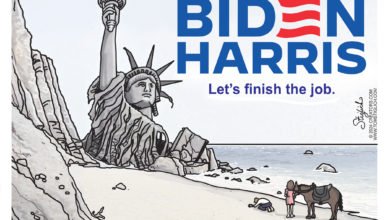Truss’ tax cut is the right thing to do, just not this year
Recently, the newly elected Prime Minister of England, Liz Truss, proposed solving her country’s economic problems by imposing a large tax cut. Not only would she cut taxes for the middle class, but she wanted to have large tax cuts for the highest income earners and reduce the tax rate for corporations. Her plan unnerved financial markets, so she withdrew her proposal.
She said she was following the logic of supply side economists, who said that cutting taxes for high income earners and corporations would make it easier for business to expand. This would grow the economy and reduce inflation.
It turns out that her plan was a good one and would do exactly as she said. It just can’t work right now. But a year from now, her idea will be deemed to be good and workable. In fact, in the US 2024 presidential election, it is likely that the Republican candidate will offer a very similar plan. At that time many, maybe most, economists will agree.
Right now, the most serious economic problem is inflation. In both the US and England inflation is at least 8.5%. It will get worse in the coming months as rising energy and rising food prices push the inflation rate to near double digit levels.
The reason there is so much inflation is that energy and food prices have already increased significantly. Wage inflation added to the problem. But most of the inflation is due to the shockingly irresponsible Monetary Policy followed by the US Federal Reserve and followed by other central banks, last year. Early in 2021, it was obvious inflationary pressures were building.
Yet the Fed and central banks in most countries including England decided that the inflation problem was temporary. As such, they further decided to maintain their policies of rapidly expanding the money supply and keeping interest rate rates near zero for the entire year.
Finally, in March of this year, the Fed, realizing that inflation was not temporary, reversed its policies and began to slow the rate of growth of the money supply and raise interest rates. By then inflation was 8% and increasing. The only way to reduce inflation at this point is for the central banks to get very aggressive with interest rate hikes.
Interest rates must be raised high enough that inflation falls. The higher interest rates will reduce total demand, especially for interest rate sensitive products like cars and houses. That will eventually bring the inflation rate down. The problem is that interest rates may ultimately have to go above the inflation rate before inflation is reduced.
When interest rates are that high, usually too much demand is taken out of the economy, so a recession results. The last time inflation was this high was in 1981. Inflation had been a problem for nearly a decade. In 1981, inflation reached 14%. Interest rates were raised higher than the inflation rate.
The high interest rates did eventually reduce inflation, but it brought on a very serious recession. Raising rates today will also bring on a recession, probably a global recession. Right now, the US is already in recession, and it is likely that China is in recession too.
As US interest rates get higher, the dollar gets stronger versus foreign currencies. Since most of the international trade is done in dollars, the strong dollar will worsen inflation for other countries. Ultimately that will push the world into a global recession.
By the end of next year, and going into 2024, policymakers will be searching for solutions. The only solution that will increase economic growth while not increasing inflation is to use Supply-side economics.
That means tax cuts that increase capital formation which leads to increases in total supply rather than demand side tax cuts. To increase capital formation taxes rates must be lowered for the highest income earners and for corporations.
As we saw in 1982, supply side tax cuts helped to keep inflation under 4% while stimulating the economy. In 1984, the economy grew at a 7.4% annual rate.
Liz Truss is right to want to lower taxes for the highest income earners and for corporations. That will create new capital which will increase supply. That leads to economic growth while putting downward pressure on prices.
This is just not the right time. Once monetary policy has reduced the inflation rate, Truss’ proposals will be welcomed.
Agree/Disagree with the author(s)? Let them know in the comments below and be heard by 10’s of thousands of CDN readers each day!




